Health & safety at work
Last reviewed March 2024 by the Clicklaw editors
Your employer must provide a safe workplace free of hazards that may lead to injury or illness. Employers must also be vigilant about threats that can profoundly affect mental health and overall well-being — including sexual harassment and discrimination.
Explore the links below to reliable online guides and tools and to organizations in BC. They have been chosen by librarians at Courthouse Libraries BC.
Selected resources
Click on a topic to see a list of resources.
|
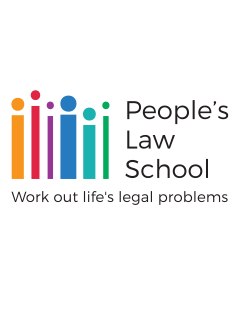
Farm Workers and Rights at Work
People’s Law School
Explains farm workers’ rights under BC’s main employment law. Topics include who is considered a farm worker under the law, and what happens if an employer doesn’t follow the minimum standards. It explains what benefits you're eligible for, and more.
Last reviewed March 2024

Discrimination in the Workplace
People’s Law School
Being treated differently than others based on personal characteristics is called discrimination. The law protects you from discrimination at work. Learn your rights and options if someone discriminates against you.
Last reviewed March 2024
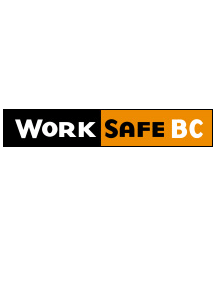
Communicable Disease Prevention
WorkSafeBC
A web page with information about communicable disease, how to prevent it in your workplace, and how to respond to periods of elevated risk.
Last reviewed March 2024
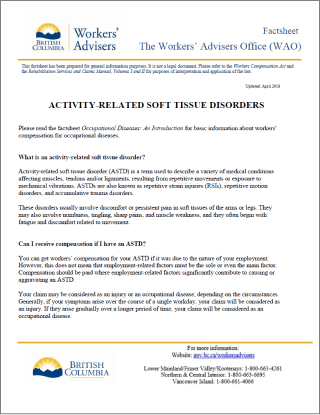
Activity-Related Soft Tissue Disorders
Workers’ Advisers Office (Government of BC)
An overview of activity-related soft tissue disorders, also known as repetitive strain injuries. This is when repetitive movements or vibrations injure muscles, tendons, and ligaments. Workers can receive compensation if work-related factors contribute to the condition.
Last reviewed March 2024

The Employer’s Duty to Accommodate
People’s Law School
Explains which human rights laws apply to your employer. When a personal characteristic protected under human rights law is involved (such as religion, age, disability, or sex), employers must do what they can to accommodate these differences. The page explains how to ask your employer for accommodation, and answers common questions.
Last reviewed March 2024

Mental Health and Rights at Work
People’s Law School
Explains that mental health issues are common, and it’s okay to reach out for help. The page has information about your legal rights, including when applying for a job, disclosing mental health issues while on the job, if you’re treated badly or fired because of mental health issues, or if you can’t work because of mental health issues.
Last reviewed March 2024

Making a Claim for Workers’ Compensation
People’s Law School
Explains how workers’ compensation works, and who can get it, explaining the range of injuries and illnesses. It describes the benefits you might be entitled to if you suffer a temporary disability, or are permanently disabled, and the benefits for families of workers. It explains the steps you need to take to make a claim.
Last reviewed March 2024

Federal Workers’ Compensation Service
Government of Canada
The FWCS processes compensation claims submitted by federal employees who have suffered a work-related injury or illness. The page links to compensation for federal workers, merchant seamen, survivors of employees slain on duty, locally engaged foreign citizens, federal inmates, and more. It includes information on how to track claims data.
Last reviewed March 2024
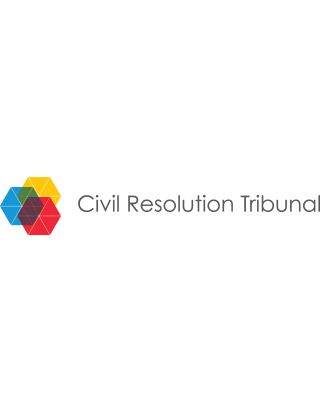
Solution Explorer: Small Claims
Civil Resolution Tribunal (CRT)
The Solution Explorer is the first step in the online Civil Resolution Tribunal (CRT) process, with free legal information and self-help tools. You can apply to the CRT for small claims dispute resolution right from the Solution Explorer.
Last reviewed March 2024
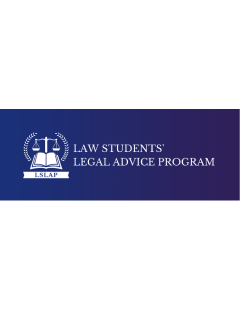
LSLAP Manual: Workers’ Compensation
Law Students’ Legal Advice Program (LSLAP)
This chapter on workers’ compensation is from the manual used by law students handling cases at LSLAP’s legal clinics. It provides an overview of the law relating to compensation for workplace injuries or illness, and describes the claims and appeal procedure.
Last reviewed September 2024